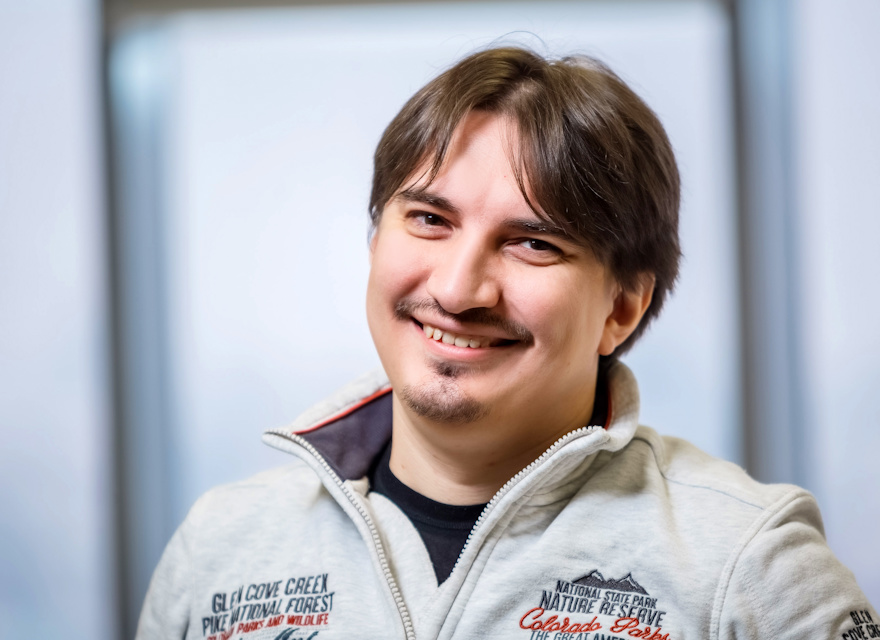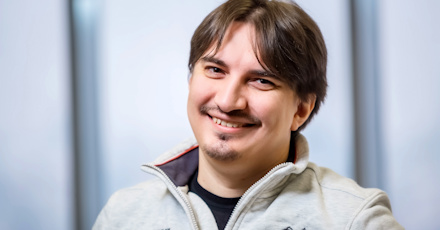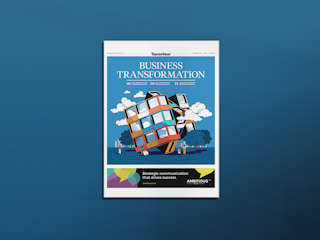Anton, huge congratulations on the latest announcement. You are already a 7-time Microsoft MVP, so what does this Regional Director status mean to you?
When I look back over everything I have done in my career, it feels good to be at this point today. Whilst it’s a great thing on a personal level, I'm actually most excited about what this means for the day to day of my role. Regional Director status means that I'll start working in more of an advisory capacity with Microsoft and that gives me the opportunity to work even more closely with the Microsoft teams, to feedback on features and releases and to help to shape the future of the products and solutions. That level of access and input is something that really appeals to me. I’m passionate about what I do, and this means I have a level of influence on the future direction of the technology.
You started working with Cloud technology relatively early on in your career, what’s led you to this point?
I graduated from University just as Ukraine was in the middle of a financial crisis. There were no jobs so I had to take a risk and started my own web development company. We worked for small, local clients, nothing on the scale of what we are working on with Valtech today, but I still have that company and still use it to test my crazy ideas in a ‘safer’ environment! After a couple of years I wanted to develop my expertise again so started working with some larger outsourcing companies and it was around that time that I started working on Cloud technology. I’ve actually discovered that I was only the second person in Ukraine to work on it - amazing really. That was back in 2009 - there was something about the business potential of this approach that really hooked me in. The idea that you only had to pay for what you were using. I knew that could be totally transformative, but people weren’t really taking much note back then.
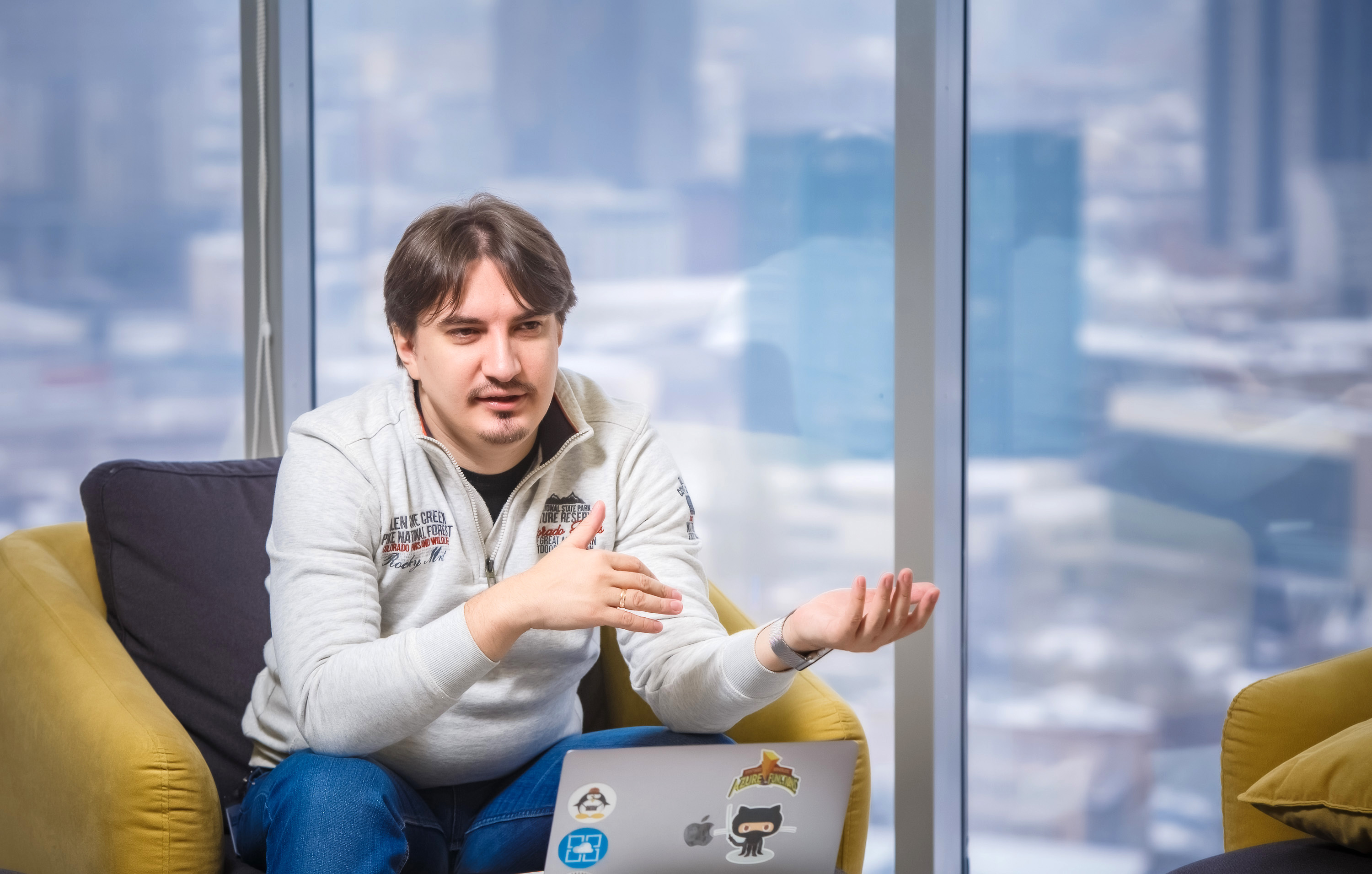
Is that what triggered you to want to get involved in the wider Cloud community?
There were so many interesting elements about working with Cloud tech, yes. The fact that you didn’t need to keep reinventing the wheel every time; you could build components on top of the existing platform… if you wanted to back up your data, you just pressed a button and it was done. These were really interesting concepts so I started working on more projects that included an Azure element. Then eventually I reached out to Microsoft and asked them to recommend a community that I could join to keep developing my ideas and thoughts, but there wasn’t one. So I started my own, and it’s something I really care about. At the moment we have 2000+ members in the community, we’ve hosted multiple meet ups and 2 major conferences so far. It’s so important that we foster the conversation and the collaboration - even more so now that the modern approach to architectures is really accelerating. MACH is a word on everyone’s minds right now.
I understand there’s another reason you appreciate the value of the Cloud - a very real world example …
Yes! In 2009/10 I experienced a physical fire in a physical data center. I was using a Ukrainian data center at the time for all of my clients’ hosting. One day they had a fire and the whole building was destroyed. After letting the dust settle a little I reached out to them to ask about the back-ups that I'd been paying extra for … they were in the next door room and had been destroyed too. It’s the thing you hear at conferences when everyone laughs and rolls their eyes - but this was the reality. It was another big moment for me when I realised what virtual hosting meant for companies like mine who couldn’t risk the same thing happening again.
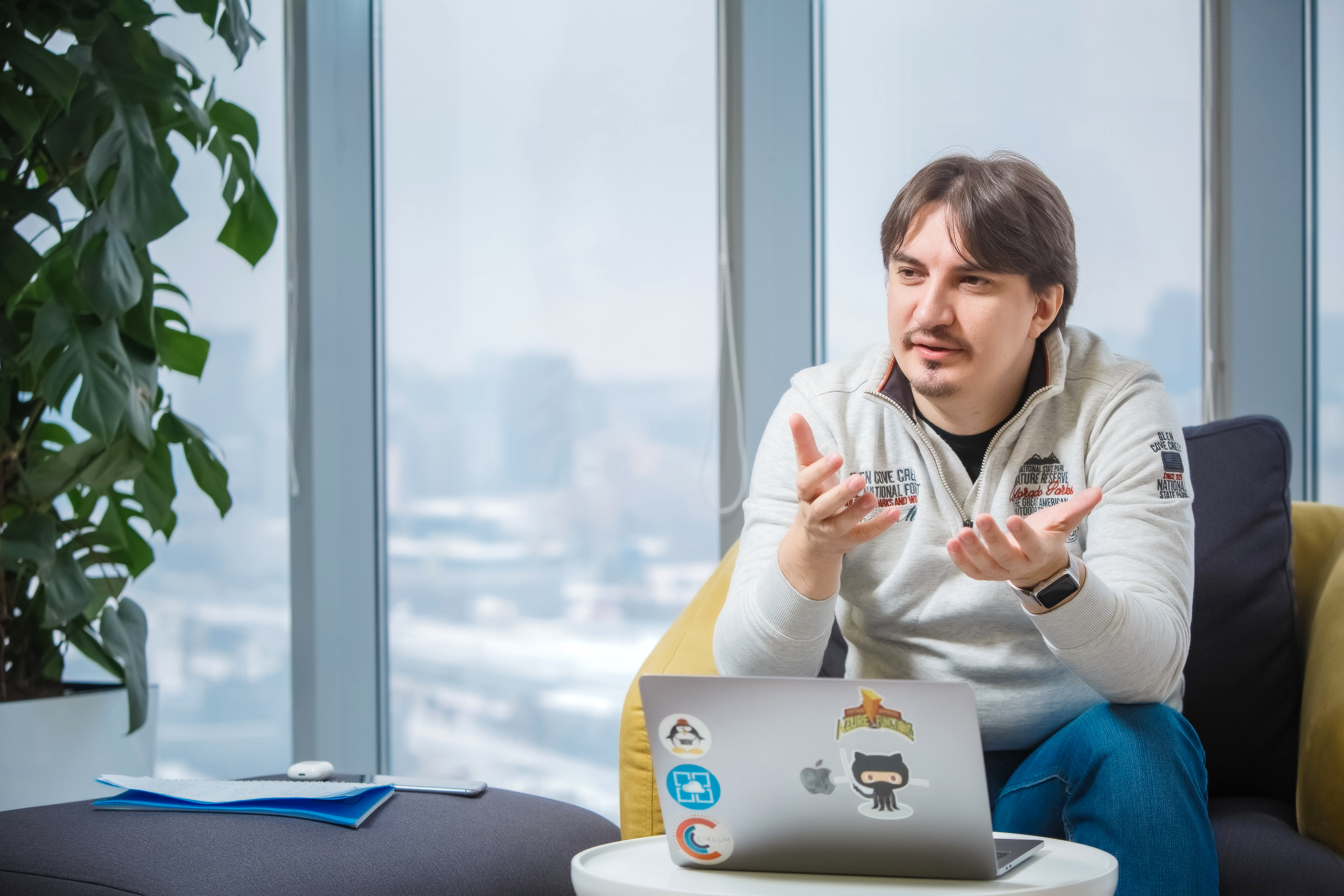
And now here you are, a Microsoft Regional Director; what has the process been to get here?
It’s been a great adventure with Microsoft. I actually worked with them for a couple of years which was a great experience but I was excited to stay in the outsourcing world and apply my experience to different clients and projects. I was lucky to be recommended to the program by a business partner. When I got the application form through, the advice from Microsoft was that it would take a couple of hours to complete but I spent a week on it - I really wanted to get it right. The process is to answer questions on your technical experience on Microsoft and non-Microsoft tech stacks as well as your business experience and community involvement including details of how you’ve made the world a better place.
And how did you respond to that?
To be a leader, you need to lead by example. I’m involved in a community project together with one of my business partners where we are building a centralised database of all of the blood donors in Ukraine. There’s no government regulation at the moment so we have had to rely really heavily on one on relationships with doctors and hospitals, it’s been really eye opening but incredibly important. Microsoft have been kind enough to provide us with some free storage on the cloud and we’ve joined forces with some other IT companies who have people on the bench that we can use for support too.
I’ve also recently started working on a new project with a team here at Valtech looking at using AI and image recognition software to create a system that will be able to analyse drone photos and highlight problems with the road infrastructure in Ukraine. That way we can rate the quality of the roads and provide that data to the Ukrainian road service who can improve them.
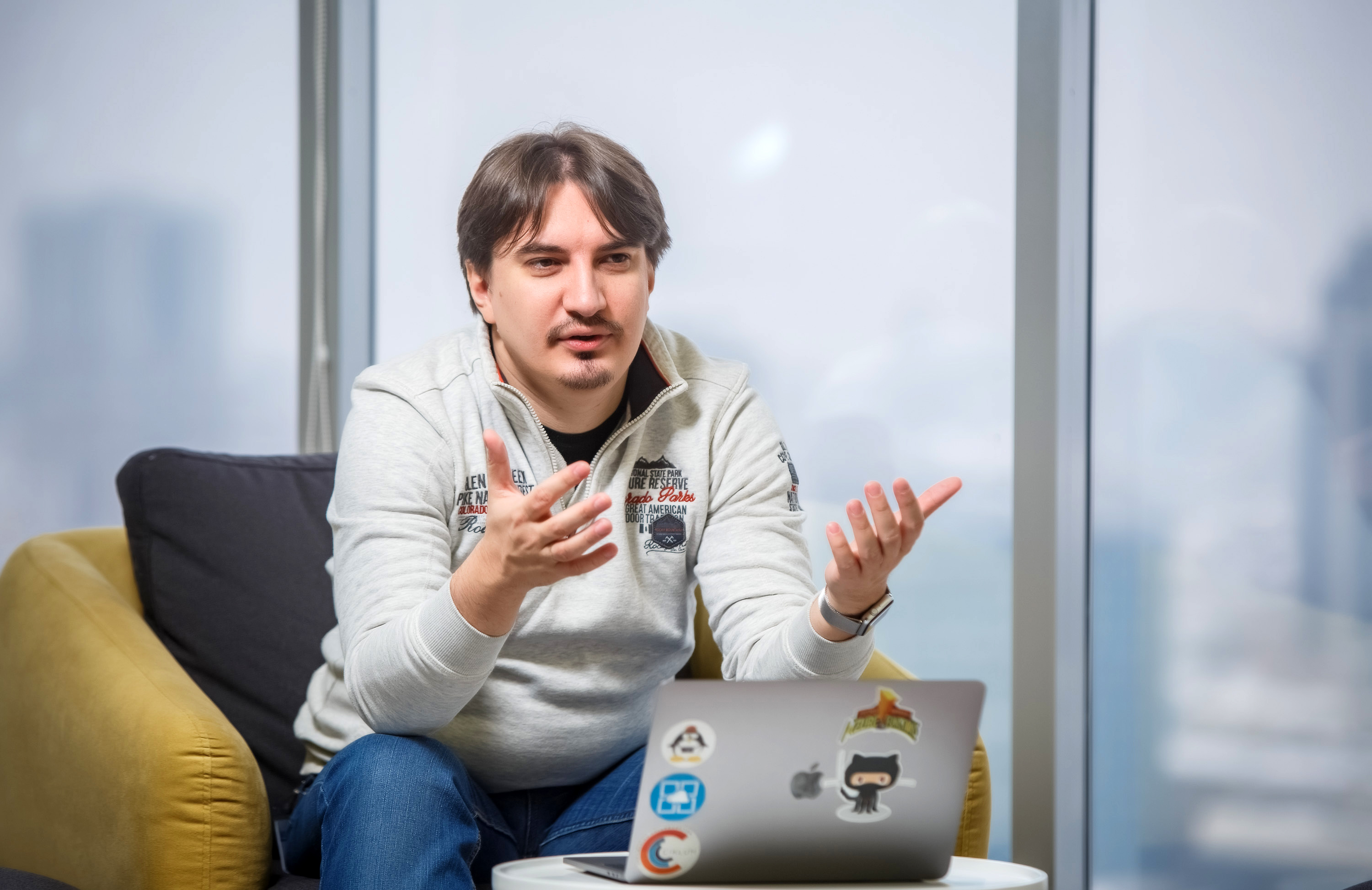
How do you see this position and the technology developing over the coming years?
I’m so grateful to be recognised among this community of experts and excited to be part of a network that is helping to define the future direction.
As for the future of the technology, the concept of Cloud technology in itself is not revolutionary; it’s evolutionary. Cloud functionality used to be about virtual machines that could be turned on and off. Today it’s evolved to be about being server-less and only paying for amount of compute resources that were consumed to generate a useful response, and not for amount of CPU and RAM that may sit there idle.
Beyond that, it’s all about artificial intelligence - that’s where I see the second most important evolution of the Cloud leading. For example, GitHub is using AI not only to scan your source code hosted there for vulnerabilities, but now it also automatically creates pull requests and sends them for your review and approval. The conversation has shifted from “you have an issue, go and find out how to fix it” to “you have an issue, here is our fix, please review and accept it”. That's transformative.
We wish Anton the very best for his new position.
If you would like to get in touch with Anton, or any of our Microsoft experts to discuss your own project ambitions, visit our Microsoft Partner Page for all of the details you need.

